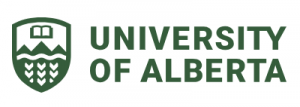GRANT NOTLEY MEMORIAL POSTDOCTORAL FELLOWSHIPS

The Grant Notley Memorial Postdoctoral Fellowship is provided by donations from friends of Grant Notley, matched by the Province of Alberta.
The University of Alberta is committed to supporting diverse research environments for all scholars and is working to drive deeper cultural change in our research ecosystem. We encourage applications from diverse applicants. One Fellowship per year will be awarded for research in politics, history, economy, society, or related fields, of Canada, with preference given to research of Western Canada.
About Grant Notley
Walter Grant Notley was born on January 19, 1939 in Didsbury, Alberta. He received his early education in Westerdal, Olds, and Didsbury, and he received a BA degree in history from the University of Alberta in 1960.
Together with his political opponents Joe Clark, Jim Coutts and Ray Speaker he created a lively political scene at the University of Alberta. On July 6, 1963, he married Sandra Mary Wilkinson of Hancock, New Hampshire.
Grant Notley became provincial secretary of the New Democratic Party in 1962 and provincial leader in 1968. He was a candidate in Alberta provincial elections in 1963 and 1967, and in the 1969 by-election. He was elected to the Alberta Legislative Assembly in 1971 to represent Spirit River Fairview, and re-elected in 1975, 1979 and 1982.
In 1982 he became Leader of the Official Opposition. His political abilities and academic background served him well in leading caucuses in the federal New Democratic Party and in Alberta politics, and earned him the respect of supporters and opponents alike.
On October 19, 1984, Grant Notley died in an aircraft accident near High Prairie, Alberta.
Value
- valued at $50,000 per year for up to two years
- includes a one-time $4,000 research allowance during the tenure of the fellowship
- covers the cost of the University Postdoc Supplemental Health Insurance Plan
- fellowships must be taken up no earlier than June 1, 2026 and no later than January 1, 2027
- funding for the second year will be subject to submission and approval of a Renewal Report
Eligibility
- Available for research in politics, history, economy, society, or related fields, of Canada, with preference given to research of Western Canada. Western Canada is defined as Manitoba, Saskatchewan, Alberta, and British Columbia and may include Nunavut, Northwest Territories and Yukon.
- Open to citizens of any country
- At the time of nomination submission to GPS, the applicant must not already hold a postdoc position at the University of Alberta or be employed at the University of Alberta
- Applicants must have completed a doctoral degree within three years from GPS's nomination submission deadline date of January 7, 2026 (i.e. on or after January 7, 2023) or will do so prior to commencing fellowship. Doctoral degrees obtained from the University of Alberta are eligible, however, no preference will be given
- Fulfillment of all degree requirements refers to the date that the applicant completed all the steps required for obtaining their degree. Although these requirements may vary by institution and degree type, they normally include thesis defense corrections and thesis deposition. It is not the convocation date.
- The window of eligibility can be extended by a cumulative maximum of two years if the applicant had their career interrupted for one or more of the following reasons:
- parental leave
- illness
- health-related family responsibilities
- mandatory military service
- disruptions due to war, civil conflicts and/or natural disasters in the country of residence
Career interruption refers to a period of time when the applicant was not working (fulltime or part-time) and when their research output was completely interrupted. Additionally, for health professionals who have engaged in post-degree non-research related clinical training (e.g., residency), the eligibility window can be extended by the duration of this training.
Interruptions used to extend the eligibility window for degree completion must have occurred after the fulfilment of your degree requirements and before the application submission deadline. Details of the interruption must be included on a Special Circumstances document that is to be submitted with the Fellowship application.
Fellowships may be awarded in departments without doctoral programs, but only where facilities are adequate and doctoral caliber research is being carried out. Fellowship holders should be likely to contribute to the advancement of learning or to achieve distinction in their profession, should not be a one-sided person, and each scholar's special distinction should be founded upon sound character and collegiality. The regulations of the fellowship prohibit recipients from holding two major awards (value of $13,000 or greater) at the same time. Refer to the Acceptance/Decline, Renewals, and Final Reports section for complete details.
Selection Criteria
The GPS convenes the Postdoctoral Fellowship Committee in March to select fellowship recipients. Adjudication criteria includes:
- Proposed Research – Does the proposal clearly state the impact, novelty, and knowledge mobilization of the research? Are the objectives achievable based on the information provided? Is the methodology clearly explained? Does the proposed research incorporate diversity in multiple forms (i.e. GBA+ assessment)?
- Research Experience – Does the applicant demonstrate the experience to carry out the objectives?
- Community Engagement – Does the applicant engage with the community at large, both as part of their research and personally?
- Research Dissemination, Honours and Awards – Does the applicant demonstrate strong dissemination of their previous research (including publications and other forms of knowledge transfer)? Have they been recognized through prestigious awards? Note: Adjudicators are encouraged to keep in mind that each research specialty has differing criteria on what is considered a productive researcher.
- Letters of Appraisal – Do the letters clearly state why the applicant is considered an emerging leader in their field? Does it communicate the impact the proposed research could have? Does the letter of appraisal from the Supervisor highlight the synergy between the applicant’s research and their own research program?
- Departmental Appraisal – Does the departmental letter of support highlight the synergies between the applicant, supervisor, department, and institution? How does the proposed research contribute to the University’s Signature Areas?
Application Procedures
- Prospective applicants are to confirm their eligibility and read all information and application instructions prior to preparing an application.
- Applicants are to first contact a Faculty member in the Department to which they wish to apply, who is willing to act as a potential supervisor for the Fellowship.
- If supported by a proposed supervisor, applicants are to complete the Izaak Walton Killam & Grant Notley Memorial Postdoctoral Fellowships Application Form and Required Document Attachments as one package, and submit to their proposed Department by the Department's internal deadline. Applicants are responsible for reaching out to their proposed Department regarding any internal Department deadlines.
- GPS will not accept packages submitted directly by applicants. Applicants must be nominated to GPS by their proposed Department by January 7, 2026.
- Applicants are to contact their proposed Department regarding their application status and whether they have been nominated to GPS or not.
Nomination Procedures
Departments may submit a maximum of one nomination per category. One applicant may be nominated for more than one category, if eligible (ex. Killam, Notley, or Killam + Notley). Departments may recommend applicants who-self identify as Indigenous or Black above the nomination quota. The self-identification MUST be declared by the applicant on the Izaak Walton Killam & Grant Notley Memorial Postdoctoral Fellowships Application Form. Nominations submitted above the quota without the applicants’ self-declaration will not be accepted.
Deadline for Departments to submit nominations to GPS (grad.awards@ualberta.ca) is January 7, 2026. Refer to the 2026 Killam-Notley Memo to Departments for complete nomination details and instructions. Each nomination must include:
1) Signed Department Nomination Form
2) Signed cover letter on institutional letterhead from the Department Chair (or delegate) indicating benefits that would accrue from the proposed collaboration. The department/faculty is to speak to the sound character and/or collegiality of the applicant
3) Completed and signed Izaak Walton Killam/Grant Notley Memorial Postdoctoral Fellowship Application Form including all attachments as well as the UofA Supervisor Letter of Support and Biosketch form (must be in requested format)
4) Three signed letters of appraisal. Applicants are responsible for arranging to have their referees send the letters to the Department
Individual departments are responsible for pre-screening all documents before ranking and submitting fellowship applications. Departments are responsible for notifying any applicants that have not been selected for nomination.
Adjudication Procedures
The GPS Postdoctoral Fellowship Committee adjudicates the competition; GPS will notify winners directly. Applicants can expect this process to take a few months, with results expected in March.
Deadlines and Timeline
Dates following the nomination submission deadline are subject to change:
January 7, 2026: Deadline for Departments to submit complete nominations (including all references) to GPS. Late or incomplete submissions will not be accepted. Applicants are responsible for reaching out to their Department regarding any internal Department deadlines prior to GPS’s nomination deadline.
January 2026: Applications are checked for eligibility and completeness.
February 2026: Review and adjudication by Postdoctoral Fellowship Selection Committee members. Postdoctoral Fellowship Committee Final Selection Meeting.
March 2026: Results letters are sent to all applicants. Recipients are to respond to offer of fellowships. Alternate candidates will be notified if a fellowship should become available.
Acceptance/Decline, Renewals, & Final Reports
Acceptance/Decline
Successful applicants should review the Postdoctoral Fellows Policies and Procedures and the Research Allowance Guidelines prior to accepting the Fellowship. Successful applicants are to complete the Notley Acceptance/Decline Form and submit it to GPS Award Services (grad.awards@ualberta.ca).
- Fellowships must be taken up no earlier than June 1, 2026 and no later than January 1, 2027. GPS is the primary contact of the Fellowship. Once the recipient has accepted the Fellowship, GPS Award Services will administer the postdoctoral appointment hire and payment process for the term of the recipient’s appointment.
- The regulations of the fellowship prohibit recipients from holding two major awards (value of $13,000 or greater) at the same time. Fellows who are offered a major fellowship from another granting agency to complete studies at the University of Alberta are required to accept it; they then may be eligible to become an Honorary Grant Notley Memorial Postdoctoral Fellow. In this case, recipients would be eligible for top up funding to a maximum of $50,000 per annum if the value of the other fellowship is less than the value of the Killam Postdoctoral Fellowship. Recipients will also be eligible for the $4,000 research allowance.
- If fellows are offered a major fellowship from another granting agency at an institution other than the University of Alberta, they can choose to decline it and accept the Notley Fellowship, or they can decline the Notley Fellowship. If they decline the Notley Fellowship, they will not be considered an Honorary Recipient and will not be entitled to receive a top-up or research allowance.
Renewals
Fellowship holders must complete and submit a Renewal Report to Award Services (grad.awards@ualberta.ca) at least six weeks before the start of the renewal year.
Final Reports
Postdocs completing a Notley Fellowship are required to submit a Final Report outlining their research activity during the tenure of the fellowship.
Research Allowance Expense Claims
GPS will set up a project/speedcode account through the Research Services Office where recipients will have access to the $4,000 research allowance. Postdocs may submit their own expenses via the university's Travel and Expense claims process by using the assigned speedcode.
The Project Holder of the account will have access to monitor expenses to ensure the $4,000 is not exceeded, however postdocs are also responsible to monitor their own costs, to follow the Research Allowance Guidelines, as well as all other related university policies.
